|
One of the things I love about Catholicism is that we celebrate the mysteries of our faith in a physical way. Going to Mass, kneeling, standing, singing, receiving the Eucharist, hearing and proclaiming the Word of God, experiencing community after Mass or at parish events. Some of our liturgical feast days even emphasize the physical contact between us and the Divine. Think of reverencing the wood of the Cross on Good Friday or participating in a Eucharistic procession on Corpus Christi. Our faith is incarnational, and our bodies are important conduits for worship. That’s part of the reason the last several months have been so difficult for so many. These physical elements of worship have been—largely—unavailable to us because of COVID-19 and the practice of physical and social distancing. Most of us have also been physically disconnected from our communities of faith, friends, and family. We’ve missed important events like birthdays, retirement parties, and even funerals. The emotional, spiritual, and psychological effects of this separation are very real and very serious. And it’s been clear from the outset of this pandemic that the Church must take action to alleviate the impact of isolation, despair, and loneliness caused by this pandemic. But who will lead the charge? I find myself asking, what is the Church going to do about it? How will we get through this? And then I realize, the Spirit is calling me. And, friends, the Spirit is calling you too. We’re not being called to wait around while someone else figures it out. God is calling us to figure this out together. We must remember that we are the Church on earth, and we are being invited by the Spirit to cooperate with God’s grace to take action and serve others, right now. We can’t simply wait for someone else to help. Those of us who are baptized are called to be missionary disciples and, ultimately, saints. And this call comes with a personal responsibility to recognize that all our lives are interwoven as branches grafted onto the Vine, as various parts of one Body (1 Corinthians 12). We are connected to one another through our baptism into Christ. Paul says, “The body is not a single part, but many.” And because of this interconnectedness, when one part suffers, the whole body suffers. So, we’ve got to do something about that, because we’re called to be “doers”. We are all suffering in some way during this pandemic. It’s not even possible to downplay that. And we all feel one another’s burdens. We especially feel our personal stresses and anxieties, day in and day out. I believe one of the answers to this anxiety and suffering is the beautiful work of spiritual accompaniment. The call to spiritual accompaniment is incarnational and based on the love of Christ. Spiritual accompaniment urges us out of our own interior world and presses us to walk with our brother or sister in whatever situation they might find themselves. Pope Benedict XVI says that God’s love for humanity is so strong that “it turns God against himself, his love against his justice” (Deus Caritas Est, 10). How, then, can we demonstrate a reflection of this great, personal love to one another if we can’t be physically present to one another? I believe we must be creative and find ways to communicate our companionship to one another in meaningful ways. We can allow ourselves to be challenged by these questions while we reflect on this topic: Do I have the ability to be present to my suffering neighbor in any way today? Do I have the capacity to do charitable spiritual accompaniment during this pandemic? I believe one effective way to spiritually accompany others as we remain physically distant is to ask challenging questions of others and engage in honest conversation. Though this may seem simple, “faith sharing” is a powerful way to be witnesses of God’s presence, and we all need to be reminded of God’s presence these days. I think there are two simple, penetrating questions that can start fantastic spiritual conversations that open our eyes to the great works of God. They are:
The answers to both of these questions reveal our hearts, our spiritual yearnings, our joys, and our sorrows; the answers to both of these questions lead us to recognize God’s presence among us, either by contemplating where we’ve seen God or petitioning His aid through prayer. I want to challenge you to invite a friend or someone you’re close with to consider these questions and then to hear their answers. Perhaps you’ll be surprised at the way the Spirit guides the conversation. I believe that through this simple practice of spiritual accompaniment, we will grow closer with one another, though distance or politics or ideologies may keep us apart. Loving and holy conversation is one way to begin healing the wounds caused over these last several months, and it is one way to accompany one another on the road as we travel strange, new paths together. To learn more about spiritual accompaniment, please click here. For more resources to deepen your faith during COVID-19, please click here.
0 Comments
During my fifth year with D.C. United, the team brought in a nutrition specialist. The specialist gave his presentation and then looked toward a table in the middle of the locker room that held about 40 pill bottles of vitamins, supplements, mild pain relievers, gels, powders, and who knows what else. The nutritionist then walked over to the table, looked back to us, and said, “you know, if you just eat well you can throw all of these out. In fact, you’d be better off doing that.” He left the locker room five minutes later and never came back. For my first five years at DCU, I had been taking those vitamins and supplements at the recommendation of our strength and conditioning coaches and athletic trainers. Now a certified nutritionist deemed the whole thing a waste of time and had even said they could hinder our performance—I wondered what exactly to do. Who should I listen to? This memory has stayed with me because it matters a lot for an athlete what you do with your body. It matters how you train, eat, sleep, relax, and recover. You need to know what is helpful for your athletic development and what is unhelpful. I wanted to know if the pills and supplements helped me or hindered me. This all applies to athletic prudence in the natural realm. Prudence is the ability to judge rightly and act according to that knowledge. It is being able to think through things correctly and then make the right choice. Thus, athletic prudence is the ability to choose and act rightly in the realm of an athletic pursuit. We make decisions and then act based upon what we have concluded is actually helpful or unhelpful in relation to our goal. I would like to apply this same line of thinking to the virtue of prudence in the supernatural realm. We should be asking what is helpful or unhelpful in terms of our spiritual lives. Just like the nutritionist condemning our pill vault and making me wonder what was actually helpful for my soccer career, we should ask what in our lives helps or hinders us from going to God. In order for us to do this, of course, we must acknowledge that God is both our goal and a worthy (the most worthy!) goal at that. When I got to the height of my playing career I was devastatingly depressed for a very concentrated span of time (only several days). For months I pondered why I hit such a low point amidst more success than I had ever expected. Eventually, through the help of the Holy Spirit, I realized that God allowed me to feel the weight of my success without Him. It was an incredible grace—but also one that was difficult to really learn. Over time the truth that my soul was more important than my sport sunk in. I realized that much of what I had made my life about was, in the end, unhelpful for reaching the ultimate Goal who is God. I started applying my athletic thinking to my spiritual life. I started asking the right questions—is this helpful or unhelpful for my spiritual life? Should I be hanging out with this group of friends so much? Are my weekend habits really bringing joy to my life? Am I living as the person I want to be? Do I know who I want to be? These questions led—and continue to lead—me to Jesus, and I find myself needing to ask them again and again. Do the decisions I make help me become who I want to be? Or are my decisions hindering me from being that person? Athletic prudence helps athletes maximize their potential and use their God-given gifts to the best of their ability. This same principle can—and should—be applied to our spiritual lives. Are the decisions, actions, and principles that guide my life helpful? Are they leading me in a good direction? Prudence, says St. Thomas Aquinas, is the mother of the virtues. You cannot possess any virtue without the virtue of prudence because prudence is what enables us to recognize what is truly good (helpful) and then act according to that good. No athlete can become great apart from athletic prudence because athletic prudence enables the athlete to recognize and act upon what helps him or her become a good athlete. Far more important, however, is the realization that no person can become who they were created to be apart from supernatural prudence. It is not possible to follow Christ without first asking yourself what exactly it is you’re already following—what is it that shapes your decisions? It may be a desire for comfort, power, status, honor, wealth, success, popularity, or any number of things. But they all fall short. To be prudent you must know the end goal. You cannot attain the virtue of prudence in the whole of life without knowing that “it is Jesus in fact that you seek when you dream of happiness.”  Taylor Kemp is an instructor for the Denver Catholic Biblical School as part of the St. John Vianney Seminary Lay Division in the Archdiocese of Denver. He is a former professional soccer player, amassing over 100 appearances over six-years in Major League Soccer (MLS) for D.C. United, and playing for both the youth and full United States Men’s National Team. Taylor holds an MA in Theology from the Augustine Institute and BS in Business Management from the University of Maryland, College Park. Recently, my husband and I attended a virtual Catholic Marriage Summit called, “Joyful Ever After.” Several of the speakers mentioned the importance of cultivating the virtue of believing in your spouse’s best intentions rather than assuming ill will when a perceived grievance is committed. I thought back to a time when my husband and I were dating long-distance. He texted me that he would be arriving late to see me, which was very unlike him. I was a bit sassy in my response. What I didn’t realize at the time was that he was late because he ran into traffic while buying me a surprise bouquet of flowers. A podcast I listen to addressed this same predicament when we interpret our children’s actions before we know their true intentions. The mom on the podcast shared how terribly she felt after becoming upset with one of her children for making a mess of crafting supplies only to find out her child brought out the materials to make her a love note. Encounters like these provide us with opportunities to choose love. Making up stories in our minds that may not be—and most of the time are not—true does more harm to our relationships than good. Assuming good intentions from our spouses, family, friends and co-workers allows us to foster and strengthen relationships. Doubting someone else is a way of protecting ourselves. God is the one who gives us courage to trust others and give them the benefit of the doubt. Being less defensive makes others more receptive. Opening ourselves up to another allows us to share the hope and joy of the Gospel. We become more likeable, less distracted by imagined problems, focused on the actual issue, and are overall happier. After all, God gives us a second, third, fourth and ultimately infinite chances in response to our shortcomings. As James 2:13 says, “For the judgment is merciless to one who has not shown mercy; mercy triumphs over judgment.” Training our minds to think of others and the best intentions they have can both help us and improve our relationships. In many occasions, the person we are interacting with may be reacting from a previous interaction that overflows into our relationship with them. By keeping an open mind without judgement, we allow the Holy Spirit to enter our hearts so that we may reach out to the other with empathy and love. This serves as a reminder to us of our own humanity and imperfection. Believing in another person’s best intentions is an act of faith. To foster this line of thinking in my own marriage, every day I try to share something I’m thankful for about my husband. I try to think about this during prayer as well to help develop gratitude. When I don’t understand something that my husband is doing or has done, I try (very hard!) to ask open-minded questions in order to open dialogue instead of shutting the conversation down or arguing. Some other ways we can seek to see the best intentions in others are: asking for clarification, listening to what’s being said rather than waiting to share our own thoughts, and refraining from editorial comments that could aggravate the situation. During these unusual times, we could all benefit from more compassion and grace. Let us open our hearts and minds to seeing the best in others. For more resources on Marriage and Family, please click here. For more resources to accompany you through this time of COVID-19, please click here. “Always ask the Spirit what Jesus expects from you at every moment of your life and in every decision you must make, so as to discern its place in the mission you have received.” -Pope Francis, Gaudete et Exsultate, 23
Have you ever prayed a novena? Some people might find such a thing out of fashion, but it is making a return among a number of Catholics. For some, the practice never left. For nine years, as pastoral director of St. Jude Shrine in Baltimore, Maryland, I led weekly novena prayers on Wednesdays and Sundays during the perpetual novena in honor of St. Jude, patron of hopeless cases. The custom of praying a novena, usually nine days of prayer, arose from the liturgical period of nine days between the Solemnity of the Ascension of the Lord and Pentecost Sunday. (In recent years, many dioceses have moved the Solemnity of the Ascension from Thursday to the Sunday before Pentecost.) This liturgical time marks for us the period between when Christ ascended to the Father and the sending of the Holy Spirit on the Blessed Virgin Mary, the Apostles, and the disciples. The Risen Christ gave his followers a mission. He told them to “Go”. But go and do what? “Make disciples of all nations, baptizing them in the name of the Father, and of the Son, and of the Holy Spirit” (Matthew 28:19). They did not go immediately, but instead were looking at the sky. They were confused. Then they went into the Cenacle or the Upper Room, prayed and discerned together. They were not ready to go forth on mission for Christ. When the Holy Spirit came at Pentecost, they received the boldness to preach and to heal in the name of Jesus Christ. Only then did they accept their being sent by Christ. As Christ sent them, so he sends us. St. Vincent Pallotti taught, as did the Second Vatican Council, that the baptized are sent into the world as apostles of Christ. In word and deed, our world needs to hear proclaimed that God is love, Christ saves, and Christ is alive (Christus Vivit, chapter 4). This is the initial proclamation of the Good News or the kerygma. When people encounter us, do they encounter Christ? Do we accompany them into greater faith in him? Are they welcomed into the community of faith, the Church? Do they realize that they, too, are sent? (cf. Living as Missionary Disciples, Part I). We do none of these works alone. We are dependent on the Holy Spirit. As Pope Francis teaches us, “When you receive the Spirit, he draws you ever more deeply into the heart of Christ, so that you can grow in his love, his life and his power (Christus Vivit, 130). The Holy Spirit will guide us in our discernment and in the mission that we have been given by Christ. May the Charity of Christ urge us on! Last week, one of my good friends sent me a funny video of a six-year-old girl who was upset at not being allowed to go to the pub. Her father manages a local Irish women’s soccer team that her aunts play on, and they were going to the pub for their Christmas party. The little girl, who feels like the team’s mascot according to the video, wanted to celebrate with her family. After laughing and laughing at the little girl’s arguments, I realized that the impulse to share something that brings such joy is a way the Holy Spirit can work through us, bringing us together even now.
After watching the video, I started thinking about how this little girl's sense of injustice is instructive for us, too, on a deeper level. In the video, she feels deprived from good times and togetherness.; denied celebration with loved ones; frustrated at restrictions that make no sense to her; and not allowed to make her own choices. Her every plea meets with rejection and her whole world feels wrong. Could this be how many of us are feeling today as a result of the coronavirus pandemic? Are we feeling isolated, lonely, trapped, or frustrated? Do we feel unheard or rejected by God? What stark contrast we experience right now between this inner despair or frustration and the emergence of spring all around us. Spring arrives nonetheless, unaltered in its processes. I think too of how Christmas still came to Whoovile in "How The Grinch Stole Christmas"--still it "came without packages, boxes, or bags!" In the movie, Christmas comes in spite of great deprivation and loss, in spite of so many unmet expectations and plans ruined, in spite of the Whos' demonstrated vulnerability. They responded by joining hands and refusing to deny the cause for celebration that they still knew inside of them, something no one or no thing could take away. We can't literally join hands right now (well, we shouldn't!) but we absolutely can remember that God has always been in control, and will always be in control, of all creation. We can remind ourselves this Easter season that His unbounded love for us remains our source of life here and our destination eternally. We can practice countering the appearance of threats with choosing to believe God walks with us and accompanies us in the midst of our suffering. We can accept His reality as our truth and in those moments that we do, we'll know in our hearts that all will be well. We can dare to trust in the power of the resurrection—the grace and new life that Christ wants to bring into our lives even today. I'm grateful to be hanging in here with all of you. We're stronger than we know, especially when united in prayer. Although I'd be quite content not to take on any more strength training at the moment, I know that the trust I'm developing is a higher good. I hope you will find that sense as well. May we continue on in hope, inviting the life of the Resurrected Christ to flourish in our hearts and homes Donna Green resides in the Archdiocese of Milwaukee. “Do not be troubled if you do not immediately receive from God what you ask him; for he desires to do something even greater for you, while you cling to him in prayer” -Evagrius Ponticus There are often times in our lives when God doesn’t seem to be answering our prayers. We pray repeatedly for certain people or intentions, sometimes for days, months—and even years—but our prayers seem to go unanswered. When nothing seems to be happening, it is easy to feel weary and disheartened. For the past several years, my husband and I have been praying for a specific situation that has only gotten more frustrating and bleak. At Mass during the first week of the Lenten season, I heard the words of Jesus to his disciples, “Ask and it will be given to you; seek and you will find; knock and the door will be opened to you” (emphasis added). After praying with this reading throughout the week, I heard the following words in my heart: “keep knocking.” I took this as a reminder to persevere in prayer. Whether or not we think God has answered our prayers does not change the fact of who he is: a good Father who knows what we need. Our intention to pray should not spring solely from the fact that we need something, but from our desire to strengthen our relationship with God and to be transformed and conformed to his will in the process. The Catechism summarizes it well when it says, “prayer is a battle” (2725). I’ve found this to be true on multiple fronts. First, it’s a battle to even set apart time to pray each day. It often seems that I don’t have time or that there are so many more important things to do. This year for Lent, I’ve decided to set apart the first 10-15 minutes of my children’s naptime for quiet prayer. This puts to practice a fact I already know intellectually: prayer gives my days purpose and meaning. Another opponent we fight in the battle of prayer is distraction. I often find that as soon as I commit to prayer time, my mind wanders or suddenly races with things to do. It’s normal to experience distraction in prayer. When this happens, simply bring yourself back to the present and don’t give the distraction too much attention. Other times, my prayer life seems dry and dull. It feels hard to pray and I don’t even have words to say. Additionally, we can experience something that might be the hardest of all: seeming silence in response to our prayers. The Catechism extrapolates, “Our battle has to confront what we experience as failure in prayer: discouragement during periods of dryness…disappointment over not being heard according to our own will…To overcome these obstacles, we must battle to gain humility, trust, and perseverance” (2728). Anything of merit is proven in times of hardship: our commitment to marriage, our love for our family, our life of faith, our dedication to a cause or ideal. We are unable to excel in an endeavor if we’ve never practiced. That is why my husband jokes that he will never pray for patience, because he doesn’t want to be presented with opportunities that will invite him to grow in that particular virtue. The Catechism speaks on this as well, “Filial trust is tested - it proves itself - in tribulation” (2734). Occasionally, we might not receive an answer to prayer immediately because the repeated action of prayer will make us grow in some way: in charity, in perseverance, in faith. The Catechism goes on to ask, “Are we asking God for ‘what is good for us?’ Our Father knows what we need before we ask him, but he awaits our petition because the dignity of his children lies in their freedom. We must pray, then, with his Spirit of freedom, to be able truly to know what he wants.” (2736) Perhaps we are praying for something that is not good for us. Or, even more likely, for something that is not best for us. Our prayers may be pure, well-intentioned, and holy, but may only partially supply what we, or the people we’re praying for, need. We often can only see part of the whole picture; our ways are not God’s ways. An example of this can be found in the story of St. Monica, who prayed for her son, Augustine, for 17 years before he was baptized and entered into the Catholic Church. In the midst of her prayers for the conversion of her son, Augustine snuck out of her care and escaped to follow his worldly pursuits in Rome. At the time, this was devastating to Monica, who only saw his continued descent into a life of sin. But it was in Rome that St. Augustine met St. Ambrose—the spirit-filled bishop who was a major catalyst in Augustine’s conversion. This example shows a good prayer that was seemingly unanswered. God did not seem to be “listening” to Monica’s pleas for her son to stay with her. Instead, he used a hopeless situation to bring about an even more powerful encounter that led to Augustine’s salvation. God never fails to hear our prayers. Said again, our prayers are always heard. By praying for something repeatedly, we grow in our charity for others, in our perseverance, and in our faith. St. Augustine himself reminds us of this, “God wills that our desire should be exercised in prayer, that we may be able to receive what he is prepared to give.” The more difficult prayer is not to pray for what we want or think we want, but to pray for God’s will to be done, as Jesus teaches us in the Garden of Gethsemane. The goal of prayer is a deepened relationship with and the love of God. We need prayer because we need God. Prayer is meant to change and transform us to be more like Christ, who lived in complete unity with the will of His Father. As the Catechism reminds us, “Against our dullness and laziness, the battle of prayer is that of humble, trusting, and persevering love” (2742). As we continue to grow in our understanding and practice of prayer this Lent, I invite you to persevere in the “battle” in order to say with Christ, “not as I will, but as you will.” For more resources on Prayer, please click here. In Romeo and Juliet Shakespeare famously asked, “What's in a name? That which we call a rose by any other name would smell as sweet.” Names convey not only an identity, but also one’s familiarity, intimacy, and attention with the subject. We are each taught the names of our surroundings in our infancy so as to be able to associate experiences and qualities with them. And this spirit of discovery continues even today, with great ceremony being performed upon uncovering an unknown celestial body, lifeform, or element. To name something is to also claim dominion over it. In Scripture, for example, Adam was tasked to name the creatures of the earth. In Genesis we read, “So the LORD God formed out of the ground all the wild animals and all the birds of the air, and he brought them to the man to see what he would call them; whatever the man called each living creature was then its name.” To call something by name implies a relationship with the person or thing named. That is why when Moses asked God Who he should say sent him to free the Hebrews from slavery, the Lord revealed the Divine Name:
Then Moses said to God, “If I come to the people of Israel and say to them, ‘The God of your fathers has sent me to you,’ and they ask me, ‘What is his name?’ what shall I say to them?” God said to Moses, “I am who I am.” And he said, “Say this to the people of Israel, ‘I am has sent me to you.’” God also said to Moses, “Say this to the people of Israel, ‘The Lord, the God of your fathers, the God of Abraham, the God of Isaac, and the God of Jacob, has sent me to you’: this is my name for ever, and thus I am to be remembered throughout all generations. This example illustrates the power of God’s Name. It is how He identifies Himself to the people of Israel and legitimizes their relationship as His Chosen People. God’s name is also sacred and demands respect. Recall the Second Commandment, as written in the Old Testament: “You shall not invoke the name of the LORD, your God, in vain. or the LORD will not leave unpunished anyone who invokes his name in vain.” (Exodus 20:7 and Dt 5:11) The name of God is so holy that the Jewish people dare not even pronounce it out loud. As Catholics, we are similarly taught that God’s name is of the utmost holiness and should only be invoked in one’s speech to bless, praise, or glorify the Lord (cf. CCC 2142-2149). His name must never be abused by careless speech, false oaths, words of hatred, defiance of God, or used in unholy ceremonies. This applies to the name of Jesus as well: Therefore God has highly exalted him and bestowed on him the name which is above every name, that at the name of Jesus every knee should bow, in heaven and on earth and under the earth, and every tongue confess that Jesus Christ is Lord, to the glory of God the Father. In his 2007 book, Jesus of Nazareth, Pope Emeritus Benedict XVI observed that God established a relationship with mankind when He revealed His name to Moses. The Incarnation, he continued, was then the fulfillment of the process that “had begun with the giving of the divine name” (Benedict XVI, 144). This relationship did not make man equal to God but “protect[s] the wonderful mystery of his accessibility to us, and constantly assert[s] his true identity as opposed to our distortion of it”(Benedict XVI, 144-145). And Christ Himself underscored the sanctity of His Father’s Name with the inclusion of “hallowed be thy name” in the prayer He taught His disciples. We pray with these words each week in Mass. As we do, have we realized the importance of what we are saying? To remind us of this truth, the Church has instituted the Feast of the Holy Name of Jesus (in its current form) as an optional memorial to be celebrated on January 3 of each year since 2002 (but originally established by Pope Innocent XIII on December 20, 1721). How great a gift that the Lord God Almighty has so intimately revealed Himself to us! Unfortunately, in today’s society there is no limit to the number of times when our culture irreverently invokes God’s name in the media, creative works, and everyday conversation. As we begin a new calendar year, how can we better model respect and humility when using God’s holy name? Can we do anything in our classrooms, workplaces, or online profiles to witness a life of respect and reverence for God? As Catholics, we are blessed to be able to pray to and know a personal God who has revealed not only His name, but even sent His only Begotten Son to be among us—something we remember this Christmas season. Let us rejoice in this knowledge and continue to cry out with our lives, “O Lord, our God, How awesome is Your name through all the earth!” -Psalm 8:2 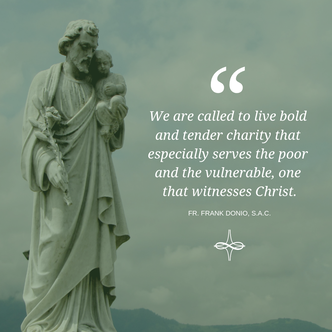 March 19th marks the Solemnity of St. Joseph, Spouse of the Blessed Virgin Mary and Patron of the Universal Church. These are rather lofty titles. He has many others. I first came to know St. Joseph, not only through the Nativity story, but because he was the patron of my parish church in Hammonton, New Jersey. As a child, I would look at the statue of St. Joseph to the right of the main altar and saw a wise looking, older person holding the child Jesus. His face was kind and tender, yet strong. Only later did I admire the work of the artist who was able to capture the essence of St. Joseph. Pope Francis, whose sixth anniversary of the inauguration of his ministry as pope is also on March 19th, reflected on these and other aspects of St. Joseph and what they mean for us: “In the Gospels, Saint Joseph appears as a strong and courageous man, a working man, yet in his heart we see great tenderness, which is not the virtue of the weak but rather a sign of strength of spirit and a capacity for concern, for compassion, for genuine openness to others, for love. We must not be afraid of goodness, of tenderness!” (Pope Francis, Homily, March 19, 2013) Charity or love, St. Thomas Aquinas tells us is “to will the good of the other.” (CCC, 1766). Goodness is not simply about being polite. It is much more than that. It is an opportunity to live love of neighbor in a way that is strong and bold at times. It is a way of showing love of God. Consider what St. Joseph did for Mary in taking her into his home (Mt. 1:24) or in moving the family to Egypt at a moment’s notice (Mt. 2:14). These were in response to God’s invitation to do so – an invitation that came in dreams. We are called to live bold and tender charity that especially serves the poor and the vulnerable, one that witnesses Christ. This is at the heart of the Lenten practice of almsgiving. It is this type of charity that “urges us on” as St. Paul tell us (2 Cor. 5:14). Pope Francis witnesses it, St. Vincent Pallotti lived it, and we are all called to do the same. May the Charity of Christ urge us on! “Prepare the way of the Lord, make straight his paths.” - Luke 3:1-6
REFLECTION Isaiah, whose words the evangelist Luke repeats in this week’s Gospel, prophesized a beautifully uncanny world. According to the prophet’s vision, no valley would be too deep, no mountain or hill too high, no road too long or path too rough for God’s salvation to reach. When we understand this word, we recognize that the saving presence of God has no limitation. God’s revelation arrives everywhere and to all life wherever it may be. No one life stands below or above another in that radically horizontal and unfamiliar world. God disregards human hierarchies, borders, and definitions. This season, we celebrate, meditate upon, and commit ourselves to our world’s greatest mystery—God incarnate and among us in Christ. Just like those along the Jordan who were invited by John the Baptist, we are invited to work for the world to which Christ, the salvation of God, arrived. The world in which we recognize God is with us and in each one of us. The world whose mystery we know capable to reveal itself anywhere and at any moment of the day. The world in which each person enters in community without prejudice or judgement but with mutual respect because we know every person to be equally chosen and beloved by God. FOCUS: Simple Living When I reflect on what prevents us from treating each other as kin and caring for each other and our common home, indifference appears as our greatest challenge. Today our politicians run campaigns based on hatred, prejudice, and the blatant disrespect of other cultures. Today so many of us deny scientific facts and disregard how our planet is suffering while we choose to continue to live numb and blind. Preoccupied primarily by our economic wellbeing, we tolerate injustice and accept apathy. Simple living this Advent must mean making space for God and others in our hearts by ridding our lives of the material goods which make us apathetic to and complicit in others’ suffering. PRAYER Just and compassionate God, whose incarnate word reveals itself to the tender and humble hearted, we pray for healing from the hurtful divisions that human hierarchies, borders, and definitions impose. Send your Spirit to renew a world divided and suffering. May bigotry shake in the path of Your love and prejudice fade in Your understanding presence. You, good guardian, know each one of us to be Your chosen and beloved. Bless and protect us as we work for reconciliation, peace, and justice. SERVICE SUGGESTION Opening our hearts to the arrival of God begins with an honest reflection on what in our lives encourages our cultural indifference to the suffering of our planet and its most marginalized peoples. This Advent, think of the moral demands of our faith and analyze whether your life habits or practices adequately demonstrate your commitment to God, all God’s people, and all God’s creation. What will you do to reflect more of the light of Christ today? **This reflection is from the 2018 Advent Reflection Guide, a collaborative effort between the Catholic Apostolate Center and Catholic Volunteer Network. To see the whole guide, please click here. Kevin Ruano, Franciscan Mission Service DC Service Corps For the past few weeks, bishops from across the globe have met in Rome for the XV Ordinary Assembly of the Synod of Bishops to discuss Young People, the Faith, and Vocational Discernment. This is a momentous time for the Church, one in which she has paused from her work in order to listen and dialogue with a powerful age group in our world today: young people. In imitation of Christ Himself, who sat down during His ministry and said, “let the children come to me,” the successors of the Apostles are engaging the young people of the world in order to learn from them, engage with them, and better accompany them on their faith journey. But what does this mean for the rest of the Church? What does this mean for us personally? The Synod is not just an event occurring in Rome, nor a series of documents and pastoral initiatives. Below I have compiled 5 key take-aways from the Synod that we can apply to our own spiritual lives. 1. Invite the Holy Spirit. In his homily for the opening of the Synod, Pope Francis reminded his brother bishops to call upon the Holy Spirit before embarking on their work. “It is the Spirit,” Pope Francis said, “who ensures that the richness and beauty of the Gospel will be a source of constant joy and freshness.” This is true for each of us. Christ left us with the gift of the Holy Spirit after His Ascension into Heaven; the Holy Spirit is our Advocate and remains with us today, present in our hearts as a result of our Baptism. Before embarking on our work on earth, let us call upon the Holy Spirit in order to guide us and ensure we are faithful to our mission. It was the Holy Spirit who transformed the cowering Apostles into bold missionaries, evangelists, and martyrs. The same Holy Spirit leads us today and helps us fulfill our baptismal call. Invite the Holy Spirit into your life, work, and day to day actions in order to live out the richness and beauty of the Gospel that Pope Francis mentions. 2. Listen. The Synod participants have been encouraged to listen intently to what the young people of the Church have to say. This attitude can only be successful if it stems from a posture of humility, an openness to the other, and a flexibility to adapt our perspective based on what we learn. All of us are called to listen to and accompany those we encounter in our day to day life. This is especially true for those of us working in ministry, but can be applied to whatever circumstance we find ourselves in. We live in a culture that seems afraid of listening. Listening is often associated with vulnerability. It opens our minds and hearts to the perspective, ideas, and dreams of the other—whether or not we agree or resonate with these personally. However, “love for the Gospel and for the people who have been entrusted to us, challenges us to broaden our horizons and not lose sight of the mission to which we are called,” Pope Francis said. Listening to another person challenges us to step outside of our comfort zone and acknowledge the truths of the other. Only by listening can we hope to dialogue respectfully with those who might not share our worldview or beliefs. 3. Discern and be silent. After calling upon the Holy Spirit, we need to create a space of silence where we can listen to God’s promptings. For the first time in a Synod, Pope Francis has instituted 3 minutes of periodic silence for participants to reflect on what’s been shared and on what God is stirring in their hearts. This is a wonderful example of ongoing discernment, which invites God into our life and asks Him to guide us in our everyday actions and decisions. “Discernment is the method and at the same time the goal we set ourselves,” Pope Francis said. “It is based on the conviction that God is at work in world history, in life’s events, in the people I meet and who speak to me.” We can also learn from the spirituality of The Society of Jesus, which emphasizes being “contemplatives in action.” This spirit of discernment is radically different from the world of busyness and noise we often find ourselves in, but it also is capable of existing within that world. When we periodically withdraw into the inner room of our hearts and pray to our heavenly Father in secret, we become better attuned not only to His presence in our hearts, but also to God’s presence in those around us. 4. Be flexible. Sometimes, it is easy to come up with preconceived notions of how things ought to be done or to maintain an attitude of “it’s always been this way.” Throughout his papacy, and once again at the beginning of this Synod, Pope Francis has challenged the Church to be flexible and to shatter our temptation to conform. In his homily for the opening of the Synod, he called the Church to “broaden our horizons, expand our hearts and transform those frames of mind that today paralyze, separate and alienate us from young people.” A healthy flexibility is key to our well-being in whatever vocation we find ourselves. Flexibility also relies on humility and allows us to admit that we don’t always have the right answers. When we as a Church are flexible, we are better able to encounter others and work together to seek the truth of the Gospel. 5. Dare to hope, to dream. A great gift that young people can give the Church is their ability to dream. Young people have passion, enthusiasm, hopes, and dreams that offer freshness and renewal to our Church and to the world. This is even more important in a world laden with suffering and problems, where it is easy to succumb to a defeatism or a pessimistic attitude. Pope Francis reminds us that “The future is not a threat to be feared, but is the time the Lord promises us when we will be able to experience communion with him, with our brothers and sisters, and with the whole of creation.” When our faith is rooted in the goodness and beauty of Christ Himself, we are better able to share His joy and hope with the world. Let us learn from the vigor and hope of young people today. May it be contagious, so that others are drawn to ask us for an account of our hope. As Pope Francis concluded in his Address at the Opening of the Synod of Bishops, “Let us therefore work to “spend time with the future … to plant dreams, draw forth prophecies and visions, allow hope to flourish, inspire trust, bind up wounds, weave together relationships, awaken a dawn of hope, learn from one another, and create a bright resourcefulness that will enlighten minds, warm hearts, give strength to our hands, and inspire in young people – all young people, with no one excluded – a vision of the future filled with the joy of the Gospel.” For more resources on the Synod on Young People, the Faith, and Vocational Discernment, please click here. On October 14, 2018, Pope Francis will canonize two great church leaders who helped shape Catholicism across the globe in the second half of the twentieth century: Pope Paul VI and Archbishop Oscar Romero. In reflecting on their lives, I cannot do justice to the complex and controversial circumstances that forged these extraordinary men into the saints they are. Instead, I’d like to reflect on something common and fundamental to us and them: Baptism. Baptism sets the foundation for a lifelong calling and mission. The Catechism calls Baptism “the basis of the whole Christian life” and “the gateway to life in the Spirit” (CCC 1213). A saint is someone who lives their baptismal identity to the full. The three fundamentals we are called to live and practice “on entering the People of God through faith and Baptism” (CCC 783) are what we call the “three offices of Christ”: Priest, Prophet, and King. What made Pope Paul VI and Archbishop Oscar Romero saints was the integrity and fullness with which they lived out their baptismal vocations as priest, prophet, and king. Priestly Vocation Both Pope Paul VI and Oscar Romero were ordained Catholic priests, but by virtue of their Baptism they shared what we call the “priesthood of the faithful.” What is this priestly vocation? We live it by offering prayer and sacrifice for others. At the heart of every saint is a love for and commitment to prayer. Archbishop Romero lived his priestly vocation in a powerful and tragic way when he was martyred on March 24, 1980 while celebrating Mass in Divina Providentia Hospital—uniting his prayer and sacrifice with Christ’s into eternity. Prophetic Vocation Paul VI and Oscar Romero excelled at the way they lived the prophetic vocation of their Baptism. A prophet, in the biblical sense, is someone called by God to deliver a message of truth through either words or actions. One of my favorite descriptions of a prophet is one who comforts the afflicted and afflicts the comfortable. During their lifetime, prophets are often inconvenient, unpopular, or even attacked, but history proves they shared the right message at exactly the right time. Both Paul VI and Oscar Romero faced harsh criticism, and Romero (as did many other prophets through history) suffered martyrdom. When Paul VI issued the encyclical letter Humanae Vitae (1968), which affirmed traditional Catholic teaching on sexual ethics, he faced a wave of criticism and dissent in the Church. Fifty years later, many Catholic moral theologians and historians see that his analysis and predictions were right on target. Archbishop Romero, standing in the tradition of Old Testament prophets like Amos and Isaiah, stood up and spoke out to the government (known as the Junta) in his home country of El Salvador, as well as other world governments (including the United States), on behalf of the poor and marginalized who were being treated unjustly. Like Paul VI and Romero, every baptized person is called to stand up and speak out for truth and justice, especially when it is unpopular or inconvenient. Royal Vocation While we gravitate toward thinking of the “royal” or “kingly” role as one of being above or served by others, it is actually the exact opposite. A true leader is one completely dedicated to serving others through his administration and decision-making. I can think of few more monumental or difficult tasks a church leader faced than Pope Paul VI when he was called by the Church to steer the conclusion and implementation of the Second Vatican Council (1962-65), which has been called the single most important religious event in the twentieth century. Archbishop Oscar Romero was often criticized for his ecclesial administration getting mixed up with the political situation. Yet Romero recognized that in order to effectively lead and serve the church under his pastoral care, he needed to engage the civil government around him. We, like Paul VI and Oscar Romero, do not become saints by being perfect administrators or leaders, but by bringing God’s spirit of wisdom into the challenges and opportunities that come our way. I would guess that at their baptism and even priestly ordination, Paul VI and Oscar Romero had no idea how God had planned for them to exercise their royal vocation. Under extraordinary times and circumstances, these saints modelled for us how we all are called to exercise leadership in ordinary, everyday circumstances with humility and whole-hearted devotion to God and others. On October 14, let us rededicate ourselves to living our own priestly, prophetic, and royal vocation of Baptism with the same spirit and integrity as Pope Paul VI and Archbishop Oscar Romero. Please click the following links for more information about the canonization and lives of Pope Paul VI and Oscar Romero. Christian accompaniment is best understood through the Gospel story of the Road to Emmaus. If Emmaus is Heaven, each of us is on our own journey: afraid, confused, and attempting to make sense of the joy of the Resurrection. Each of us needs someone to walk beside, someone who will minister to us by simply listening, then understanding, and advising. On this journey, our earthly traveling companion is on one side and Jesus is on the other. The disciples couldn’t have come to understand the Paschal Mystery or their relationship with it until they let Christ be their guide.
As a precursor to the 2018 Synod, the Synod of Bishops released their working document, or Instrumentum Laboris, on Young People, the Faith, and Vocational Discernment. In its second part, the document discusses the necessity for vocational accompaniment, defined as “a process that is able to unleash freedom, as well as the capacity to give and to integrate the various dimensions of life within a horizon of meaning.” Though a rather lofty definition, it is clear that accompaniment centers around a proper understanding of discernment. Discernment can be a confusing Catholic buzzword. For some, the mere thought of it causes extreme panic, while others understand it as equivalent to “religious life.” I can’t count the number of conversations I’ve had where someone leans over to me and asks in a hushed tone, “Are you discerning?” to which I respond bluntly, “EVERYONE is discerning!” Every young person is constantly discerning not only our capitol “V” Vocation (such as a call to religious life, the priesthood, or to marriage), but also our vocation for every year, month, or moment of our lives. Each day is an opportunity to ask to know God’s will. Even a small daily prayer invites Him to let the Spirit work in our lives. With this definition of discernment in mind, accompaniment is the simple act of being present to someone, forming a relationship in order to walk with him or her towards an understanding of Christ’s will. The Synod’s Instrumentum Laboris says that there are many kinds of accompaniment. Whether it be formal spiritual direction, psychological accompaniment, advisement from a trusted elder, etc., accompaniment is necessary for the spiritual journey. We cannot live out our faith alone. We need others to share with, to learn from, and to pray with in order to grow as children of God. In my own journey, I have been blessed to be accompanied by many different disciples. My parents were the first to show me what it means to be accompanied in and through love. In high school, a few wonderful teachers gave me room to grow and begin to understand how Christ was speaking in my life. In college, I learned how to open myself to totally new companions and walk with college-aged ministers. In the most traditional sense, an excellent diocesan priest and longtime friend welcomed me in spiritual direction last year and together we learn how God is calling me to serve Him as I grow as a person and daughter. I know accompaniment is important because when I try to walk the road alone, I am met with a sense of isolation and confusion. When I made the decision to study abroad in Rome for the semester, I never realized the sort of impact it would have on my spiritual life. Leaving my closest companions, faith friends, and spiritual director behind in the United States, I felt unable to cope with the new challenges I’m facing. I’ve come to realize that without those spiritual relationships, the journey towards Christ becomes far more difficult. To accompany and to be accompanied are not positions to be taken lightly, and hopefully this Synod will show the Church how to better foster these sorts of relationships. In a time where many of us are feeling betrayed or isolated by the Church, it is difficult to trust that She is the source of these types of reliable and authentic relationships. As young people, however, we have to trust in the healing mercy of the Holy Spirit and the grace bestowed upon our Church’s shepherds. It is not an easy time to be a Catholic or a young person, but that is all the more reason for us to persevere on the journey with a companion on one side and Christ on the other. Lately, I have been reflecting on discipline as an important element of discipleship. What does the word discipline mean to you? Commitment, application, diligence, resolve, zeal, conscientiousness; these are all synonyms of the word discipline. Discipline and its synonyms imply a persistence, a willingness to do something difficult over and over in order to achieve a goal or to serve some purpose. Am I a dedicated disciple of Jesus Christ who is willing to discipline myself, physically and spiritually, body and soul, to be the best version of myself? Am I committed to using that self for the glory of Christ’s work on earth?
More often than not, the secular fitness industry attempts to convince people to be concerned with disciplining their bodies for aesthetic reasons. You should eat right, exercise, and get enough sleep so that your body conforms to a certain standard of beauty. The implication is that people who conform to this standard of beauty feel better about themselves, are admired more by other people and are more successful in life—but what if we cared about the health of our bodies because it was also bound up in the health of our souls? Scripture teaches us that the human body is made in the image of God, which the Catechism explains that “it is a human body precisely because it is animated by a spiritual soul” (CCC 364). This means that our bodies are not just our bodies: they are ensouled. That doesn’t mean that the body is just a container for the soul. Rather, “the unity of soul and body is so profound that one has to consider the soul to be the ‘form’ of the body: i.e., it is because of its spiritual soul that the body made of matter becomes a living, human body; spirit and matter, in man, are not two natures united, but rather their union forms a single nature” (my emphasis, CCC 365). The soul and the body are uniquely bound. The “form” of the soul organizes and determines the “matter” of the body—just as a collection of wooden planks can be organized by the form of “ship” or “house”. Thinking about all of this within the context of healthy living, understanding our human nature as the union of body and soul can help us to recognize the spiritual importance of caring for our material bodies. What if we took a walk, fueled our body with proper nutrition, or went to the gym because we knew that it would keep us more energized, focused, and alert to fulfilling God’s work on earth? The bodies that we have been given are a gift from God, and much like the rest of creation, it is our task to faithfully steward them. One way that we can live as faithful stewards of our bodies is to invite God into our daily choices. We can pray for the strength to take care of our bodies and when it feels like making a healthy choice is too difficult, we can offer up the sacrifice for someone else. The next time you are debating on whether to spend some time focusing on improving your bodily health, make the decision to offer the sacrifice of your time and energy for a specific intention. The intention can be for a family member, an acquaintance, a close friend, or perhaps a special intention that you are struggling with. “Offering it up” for another person is a form of “intercessory prayer,” which “leads us to pray as Jesus did” to God the father on behalf of others (CCC 2634). Offering the pain and suffering of bodily discomforts is a good way to continually remind yourself that your body is intimately connected to your spirit. Using your body for prayer is not a new idea in the Church. As Catholics, our worship and our sacraments are very sensorial. We cross ourselves, we kneel at the most important parts of Mass like the Consecration, and we use sacramentals like incense and holy water to orient ourselves in prayer to God. We should ask ourselves whether we are using our bodies properly during the spiritual activities of our week. Do we allow ourselves to be fully present and attentive at Mass by folding our hands in prayer and using our eyes to gaze upon the consecrated Body and Blood of Christ? When we genuflect or make the Sign of the Cross, do we muddle through the motions or do we execute each movement deliberately and with reverence? When we prepare ourselves for scriptural reflection or meditation, are we aware of the physical ways that we can help our bodies and brains to relax and focus so that we can bring all of our attention and faculties to Christ? Why should we be concerned with this idea of body AND soul? Our body and soul were designed as one; when we forget one for the other we are not living fully in service to our Lord. Let us use our bodies and souls in action and deed as one instrument for the Glory of God. Question for Reflection: How can I make my prayer more reverent by using my body? Who are they people in my life for whom I can offer up physical discomfort? 6/9/2018 An Interview with Fr. General Jacob Nampudakam SAC on the 40th Anniversary of his ConsecrationRead NowFr. Jacob Nampudakam SAC is the Rector General of the Society of the Catholic Apostolate. He was elected in October 2010 and is the first non-European Rector General. This interviewed was conducted by Catholic Apostolate Center Program Associate Julianne Calzonetti in Rome, Italy.
1. Matthew 4:1-3a: Jesus spent 40 days in the dessert: What have been some of your greatest trials in 40 years? Two main trials: First, I am always in favour of life. Following Deuteronomy 30, 19-20, I had to make a choice between blessing or curse, life or death. God challenges us to choose life. In life we find hope; the ability to live in wonder, nurture in love, and not despair. Hence when members show a spirit of defeatism and negativity- without making efforts to create life- it is challenging. Nothing is achieved by being chronically negative. “Rather, the one who loves Christ is full of joy and radiates joy,” as Pope Francis reminds us. Second, when members become instruments of disunity rather than unity; allowing themselves to be guided by worldliness instead of the Spirit. This is the antithesis of Jesus Christ, who tells us that His Kingdom is not of this world. Following anything other than the Spirit will lead to confusion and destruction; a problem which then takes root in the afflicted person’s heart. Thus, internal problems become external situations, which are very difficult to handle. 2. Joshua 5:6 The Israelites walked 40 years in the desert: What has been your greatest moment of trusting the Lord? “Abandon yourself to God,” St. Vincent tells us, “with perfect confidence and do not fear.” In breathing these words, we are graced with the bravery God willingly gives to go forth and proclaim the Gospel to all creation. We can also use such words to explain two of our missions, Peru and Vietnam. If we lived in the world, we would say such ambitions were impossible, as they were taken up by entities with very few members. Yet instead they are flourishing; for in our steadfast courage and faith, the Lord blessed us in a hundredfold. The moral of the story is this: trust the Gospel. Take no purse, no haversack. He is with you. Another element of surprise was my election as Rector General. It’s not easy to break the frontiers and boundaries set by International Congregations, but when the fresh air of the Spirit blows through the windows, thy will be done. 3. Jesus remained on earth 40 days after his Resurrection: What is your hope and mission, father, for the remainder of your term as Rector General, as well as the remainder of your time as Jesus' anointed one on his earthly pilgrimage? First goal: Make our holy founder known and loved by as many as possible; to offer his charism of the Union of the Catholic Apostolate in service of the Church’s mission. Second goal: Give the compass to God, listen to the cries of His people, and “be led forth with peace” (Isaiah 55:12) to the peripheries. May we be the soul that God brings to their feet, so that they may have the life in abundance He has promised. In all my journeys, what my eyes have seen cannot leave me unaffected. But in each, the open wound of my heart remains the same: for the innocent children who are deprived of love, laughter, family, medicine, education… human dignities that no person on this earth should be denied. We all have equal rights for the blessings given to us by the Creator. To live in luxury disregarding the poor around us- like the parable of the rich man and Lazarus- would be the greatest sin of a Christian. We are all poor before God. 4. 40 is seen as a generation in the Bible. What has changed in the Society and Missions? What has been made better/worse? Everything changes. We try to discern and respond to the signs of the times. Yes, the Society has grown. We have reached out to as many as 56 countries around the world. There are about 2400 members in the Society, and then, of course, the entire Pallottine Family. The scenario in the Church and all the religious Congregations is changing; and it’s moving south. Though this makes no difference; I believe it matters little where we are growing or diminishing in any part of the world. The Church is one body of Christ. Through the consecration we make, we become members of the Society. As so often said by me on visitations, we may be Italians, Germans, Polish, Brazilians, Indians etc., but we are all Pallottines, and one family. I do not believe in lamenting over the decline in one part of the world or rejoicing too much about the growth elsewhere. Such things happened in the past and continue to happen today. Tomorrow has not yet come. The Spirit moves where it wills! Success or failure – let history judge us. 5. As this generation ends, God makes another anew, just as the papacy of Francis is evermore on target with the teachings of Pallotti in Gaudete. How will you lead us in following his papal mission? The greatness of any Christian must be measured by his or her fidelity to the life of Jesus as we encounter him in the Gospel. For me, Pope Francis is someone who lives the Gospel in its radicality. The will of God is our sanctification. There are 3 similarities between our holy founder and Francis: 1. The life of Jesus as the fundamental rule of life and apostolate; 2. A poor Church for the poor; 3. Go forth to the peripheries of human life. These three steps are only possible when the first is achieved: Encounter the person of Jesus in the Gospel on a daily basis. 6. India: You are the first non-European Rector General. What have been the changes over 40 years you have seen in your country? While India as a country is slowly coming of age, what strikes me is the tremendous contribution that the minority Church- 2% of the Catholic population- is making to the Universal Church. In our Society- and the Pallottine Family as a whole- the growth in India is tremendous. No doubt, we are not talking about a perfect situation in all areas, just as in any other part of the world. The unique contributions of the Indian Pallottines are most fruitful where we are able to be faithful to our rich, spiritual traditions and work zealously to be instruments of peace and communal harmony. The 58 schools run by the Pallottines, with thousands of teachers and students from all religions, could serve as the best instrument to promote unity and peace in a world divided by religious disharmony. The One Almighty and Loving God is the Creator of every human person created in His own image and likeness. The ability to respect and love every human being, regardless of his nationality, culture or creed, and be able to see the face of God on each person, will make us universal human beings. The future of the Society, the Church, and the world itself will depend much on this ability to go to the most profound ontological and existential level and be universal persons. Building walls is a sign of innate fear and insecurity. Having grown up in a multi-religious context in India, where we played and grew up with Hindu, Muslim and Sikh youngsters, it does not frighten me to deal with one of a different faith. Experiences mould us. Let’s open up as a Society and work for the common good. But firstly, let’s open up our hearts. That is exactly the work of the Holy Spirit; who opened up the newly founded Church on the day of Pentecost. 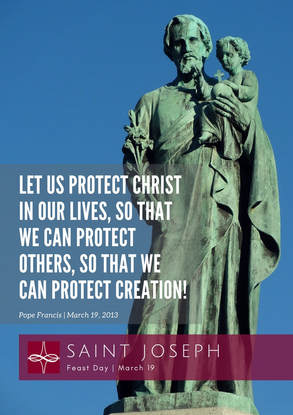 "In the Gospels, Saint Joseph appears as a strong and courageous man, a working man, yet in his heart we see great tenderness, which is not the virtue of the weak but rather a sign of strength of spirit and a capacity for concern, for compassion, for genuine openness to others, for love. We must not be afraid of goodness, of tenderness!" - Pope Francis (Homily for the Beginning of the Petrine Ministry of the Bishop of Rome, March 19, 2013) Blessings on this Solemnity of St. Joseph! As we celebrate this feast day of the Patron of the Universal Church, we also celebrate the fifth anniversary of the beginning of the Petrine ministry of Pope Francis. He chose this day particularly for this event and later inserted an invocation of St. Joseph into all the Eucharistic Prayers, not simply Eucharistic Prayer I (Roman Canon). Pope Francis not only invites us to see St. Joseph as protector of the Universal Church, but also calls us all to be protectors who live with tenderness that shows the love of Christ. What does it mean to be a "protector"? In the same homily quoted above, he offers us an answer, which he witnesses as pope. "In [St. Joseph], dear friends, we learn how to respond to God's call, readily and willingly, but we also see the core of the Christian vocation, which is Christ! Let us protect Christ in our lives, so that we can protect others, so that we can protect creation! The vocation of being a "protector", however, is not just something involving us Christians alone; it also has a prior dimension which is simply human, involving everyone. It means protecting all creation, the beauty of the created world, as the Book of Genesis tells us and as Saint Francis of Assisi showed us. It means respecting each of God's creatures and respecting the environment in which we live. It means protecting people, showing loving concern for each and every person, especially children, the elderly, those in need, who are often the last we think about. It means caring for one another in our families: husbands and wives first protect one another, and then, as parents, they care for their children, and children themselves, in time, protect their parents. It means building sincere friendships in which we protect one another in trust, respect, and goodness. In the end, everything has been entrusted to our protection, and all of us are responsible for it. Be protectors of God's gifts!" As one can see from the highlights above which link to an encyclical, two apostolic exhortations, and the bull of indiction of the Extraordinary Jubilee of Mercy, Pope Francis outlined in his inaugural homily some of the themes of the teaching of his pontificate. His actions toward those on the peripheries witness as well to how we can both protect and show tenderness, "responding to God's call" as St. Joseph did. For as he said also in his homily, "only those who serve with love are able to protect!" May the Charity of Christ urge us on! |
Details
Archives
July 2024
Categories
All
|
About |
Media |
© COPYRIGHT 2024 | ALL RIGHTS RESERVED


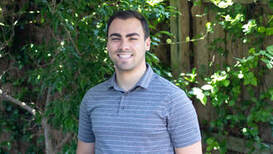
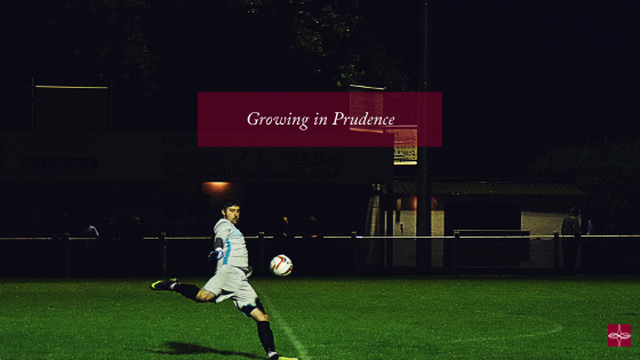


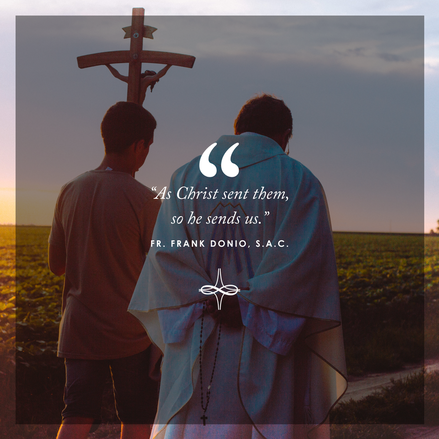
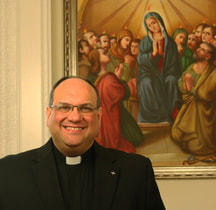
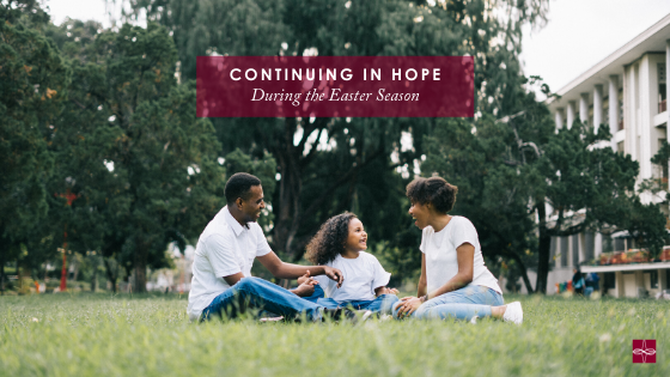
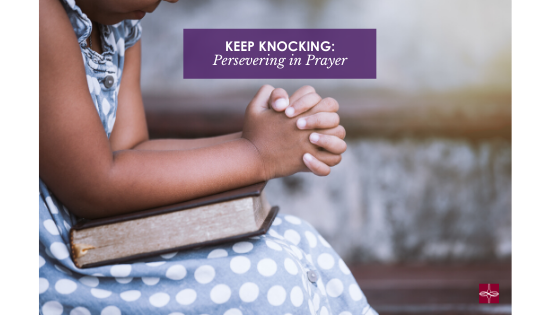

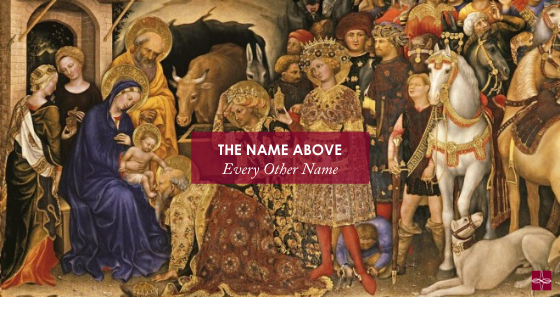

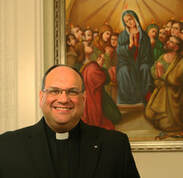

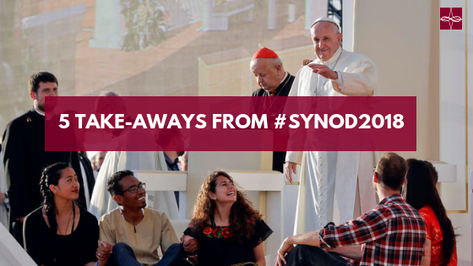

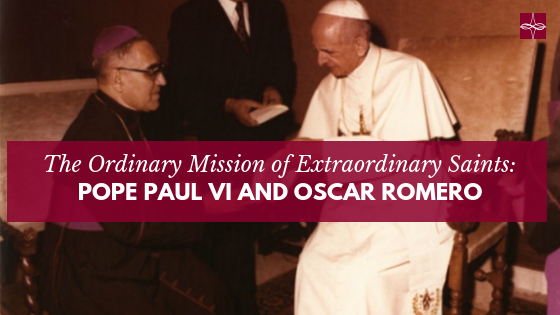



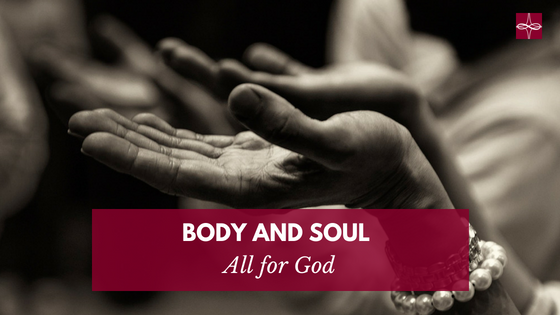

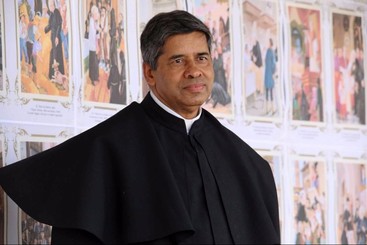
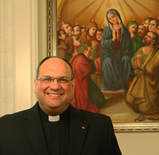
 RSS Feed
RSS Feed